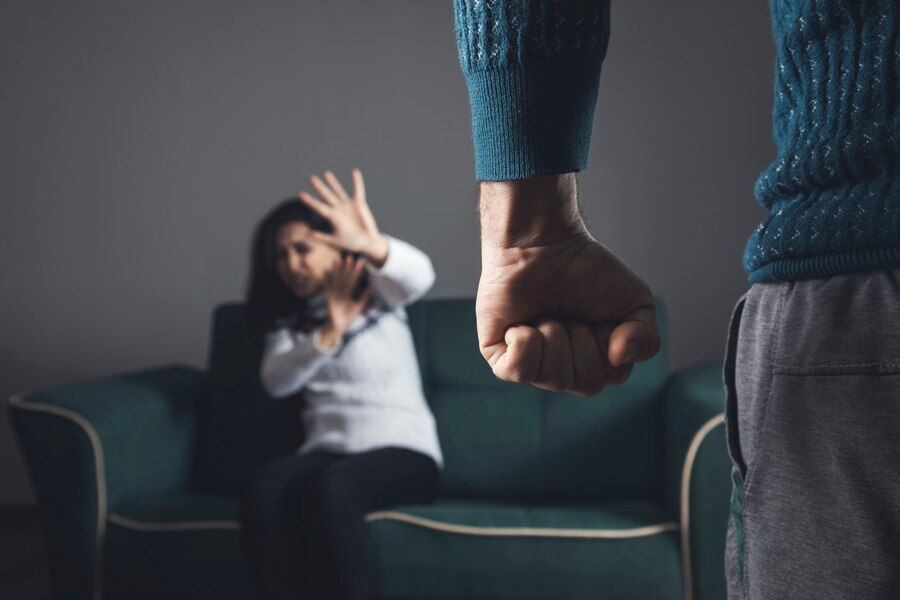Addressing Physical Abuse and the Importance of Counseling
Physical abuse is a serious and harmful form of violence that can have long-lasting physical, emotional, and psychological effects on individuals. It involves the use of physical force to cause harm, injury, or pain to another person.

Managing physical abuse requires a comprehensive approach that includes seeking safety, professional help, and emotional support. Counseling plays a crucial role in helping survivors of physical abuse heal and rebuild their lives. This article explores strategies for managing physical abuse and the benefits of counseling.
Understanding Physical Abuse
Physical abuse can take many forms, including hitting, slapping, punching, kicking, choking, and using objects to cause harm. It can occur in various relationships, including intimate partner relationships, family relationships, and caregiver relationships. The impact of physical abuse can be severe, leading to physical injuries, emotional trauma, and long-term psychological effects.
Strategies for Managing Physical Abuse
- Seek Safety
- Immediate Danger: If you are in immediate danger, call emergency services or seek help from a trusted friend, family member, or neighbor.
- Safe Environment: Find a safe place to stay, such as a shelter, a friend's house, or a family member's home. Ensure that you are in a secure environment where the abuser cannot reach you.
2. Reach Out for Support
- Support Networks: Reach out to friends, family members, or support groups who can provide emotional support and practical assistance.
- Hotlines and Helplines: Contact domestic violence hotlines or helplines for guidance, support, and resources. These services are often available 24/7 and can provide immediate assistance.
3. Document the Abuse
- Record Incidents: Keep a detailed record of the abuse, including dates, times, descriptions of the incidents, and any injuries sustained. This documentation can be important for legal purposes.
- Medical Records: Seek medical attention for any injuries and keep copies of medical records and reports.
4. Legal Protection
- Restraining Orders: Consider obtaining a restraining order or protective order against the abuser to prevent further contact and ensure your safety.
- Legal Assistance: Seek legal advice and assistance from organizations that specialize in helping survivors of abuse. They can provide guidance on your rights and options.
5. Counseling and Therapy
- Professional Help: Engage in counseling or therapy with a qualified mental health professional who specializes in trauma and abuse. Therapy can provide a safe space to process emotions, heal from trauma, and develop coping strategies.
- Support Groups: Join support groups for survivors of physical abuse. Sharing experiences with others who have faced similar challenges can provide validation, understanding, and a sense of community.
The Role of Counseling in Managing Physical Abuse
Counseling plays a vital role in helping survivors of physical abuse heal and rebuild their lives. Here's how counseling can help:
- Emotional Support
- Safe Space: Counseling provides a safe and confidential environment where survivors can express their emotions and experiences without fear of judgment.
- Validation: Counselors validate the survivor's feelings and experiences, helping them feel understood and supported.
2. Healing from Trauma
- Trauma-Informed Therapy: Trauma-informed therapy approaches, such as Cognitive Behavioral Therapy (CBT) and Eye Movement Desensitization and Reprocessing (EMDR), can help survivors process and heal from the trauma of physical abuse.
- Coping Strategies: Counselors teach coping strategies to manage anxiety, depression, and other emotional responses to trauma.
3. Building Self-Esteem and Empowerment
- Self-Esteem: Counseling helps survivors rebuild their self-esteem and self-worth, which may have been damaged by the abuse.
- Empowerment: Counselors empower survivors to regain control of their lives, make informed decisions, and set healthy boundaries.
4. Developing Healthy Relationships
- Relationship Skills: Counseling can help survivors develop healthy relationship skills and recognize signs of abusive behavior in future relationships.
- Support Networks: Counselors assist survivors in building and maintaining supportive relationships with friends, family, and community members.
5. Creating a Safety Plan
- Safety Planning: Counselors work with survivors to create a personalized safety plan that includes strategies for staying safe, accessing resources, and seeking help in case of future threats.
The Path Forward
Managing physical abuse is a challenging and ongoing process that requires courage, support, and professional help. Counseling can play a crucial role in helping survivors heal from the trauma of abuse, rebuild their lives, and achieve a sense of safety and empowerment. If you or someone you know is experiencing physical abuse, seeking help is a vital step toward recovery and a brighter future.
Physical abuse is a serious issue, but with the right strategies and support, survivors can heal and lead fulfilling lives. Remember, seeking help is a sign of strength, and there are resources available to support you every step of the way. If you have any further questions or need more information, feel free to ask!
CATEGORIES












